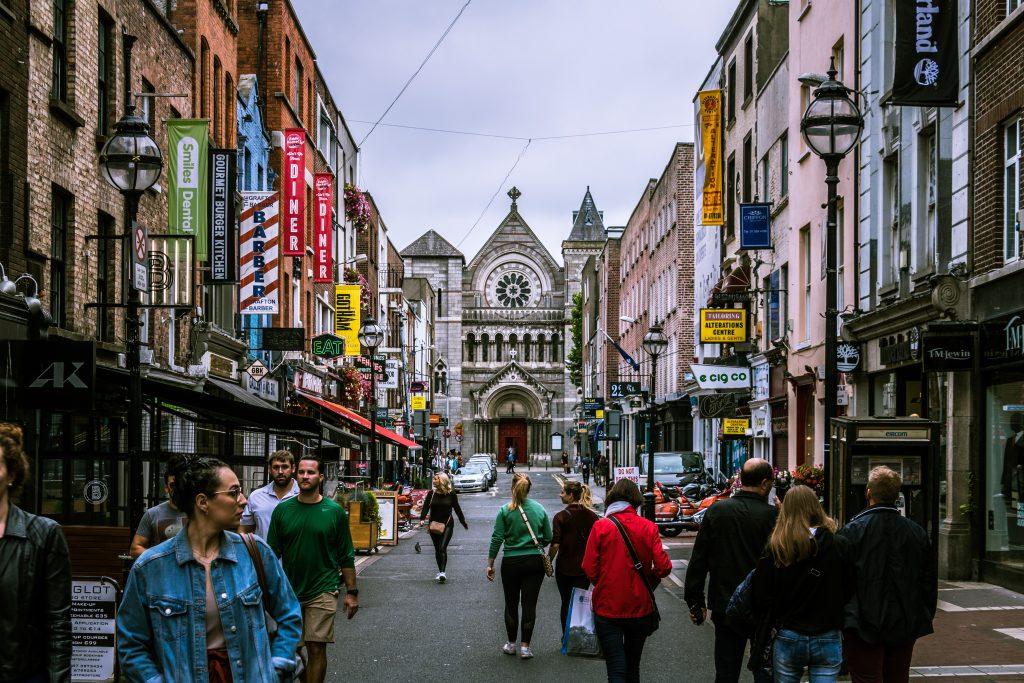Judging by recent trends, Jutarnji writes, it looks like the situation is changing and that Ireland is no longer as desirable a country as it was in the last ten years since Croatia’s entry into the EU.
According to official data, 29,200 Croatian citizens moved to Ireland, 32,102 from 2001 to today. This is the number of issued PPS numbers, a version of the Croatian OIB (personal identity number), without which a foreigner cannot get a job in Ireland or resolve their health and social status. The peak was recorded in 2016 when 5,312 people left Croatia. A slight decline followed, further intensified by the pandemic in 2020, so only 1,399 PPS were issued then. There has been a slight increase in the last two years, 1,750 PPS were issued in 2021 and 1,823 in 2022, but the general impression is that the interest of Croats in moving to Ireland is waning. In January of this year, 133 PPS were issued, fewer than in January of last year and the year before.
The pandemic, Russian aggression against Ukraine, high inflation, and recession have influenced the trend of decreasing departures to Ireland. The negative economic indicators are most evident in the drastic increase in accommodation prices. In Dublin, the first contact with Ireland for most Croats, a bed in a room or apartment with several people cannot be found for less than 650-700 euros per month. Therefore, some Croatian expats replaced Ireland with another country, and many returned home. They also notice this in the Croatian Embassy in Dublin. Jutarnji spoke with Croatian expats who returned from Ireland.
Josip Kelava lived in Ireland for four and a half years and returned home just before the declaration of the pandemic.
“I changed four jobs. I started from working in a warehouse doing night shifts, moved to the marketing department of a company that produces stickers, and ended up at Amazon”, said this IT specialist from Zagreb, who stayed in Dublin the whole time.
“The experience is very positive, but I planned to return the whole time, so I don’t see this as a failure. It helped me grow up and become responsible for myself and my finances. But it’s all for nothing if it’s not used in the future, and now everything I did there is beneficial, especially Amazon in my CV and the daily use of the English language. The benefits are great, but if you don’t monetize your stay in Ireland after returning home, you went in vain,” noted Josip.
He pointed out that the great advantage of Croatian expats is that they are versatile and they are not afraid to do tasks that are not in their job description. Their Irish bosses then reward them with a promotion or a raise. He added that it was much easier for him to return to Zagreb, where there are greater opportunities, than for someone who left from the rural areas of Slavonia or Lika, where the environment might consider it a failure.
“Some people dislike the weather, so they return after two weeks. The Croatian expats community helped me a lot; we would gather at Church and play football, and we formed our own team. It was through a friend from football that I got to Amazon,” said Josip, who confirmed that accommodation in Dublin is extremely expensive.
“Now it is even more difficult, and people have started fleeing en masse from Dublin to Galway, Waterford… I have family friends in Waterford who are already considering returning to Croatia. It’s not a fairy tale. It’s a beautiful island, the income is good, but the quality of life in Croatia is still at a higher level,” concluded Josip, who, in the meantime got married, and he and his wife are now expecting their first child.
Vesna Ivanisevic from Sibenik also returned to Croatia with positive experiences but a great desire to return home. This Bachelor of Nursing returned last summer after three years in Limerick.
“I think that anyone who wishes to go should go and try it to see for themselves whether it is for them or not. I felt that I could and wanted to do more, which I couldn’t achieve in Croatia, so I started looking for jobs in Europe. I contacted a recruitment agency and quickly got a job at a hospital in Limerick. It is unnecessary to talk about working conditions. They were practically ideal, and I worked in an intensive care unit where the European standard is applied: one nurse, one patient”, said Vesna.
She lived in a shared house with roommates from all over Europe. She had her own room with a bathroom and paid 400 to 600 euros monthly for that. In such circumstances, she says, when you are alone, without a family, and only paying for a room, you can save a lot of money.
“Life in Ireland has many advantages, but of course, there are disadvantages. One of them is that all activities are indoors, even sports. I tried my best to go to nature, even in the rain, but I would enjoy it the most if I went to the Adriatic every year. Some values crystallized during the time I spent there. Also, the pandemic had a lot of influence on my return to Croatia. All my friends went home to their regions, both Irish and foreigners. After a while, I felt that nothing was holding me anymore and that I had no big reasons to stay. I couldn’t see myself staying there in the future, and I definitely wanted to return to the Mediterranean, to return home to Sibenik, which is developing very well and where I feel comfortable,” said Vesna.
For more, make sure to check out our dedicated Lifestyle section.








